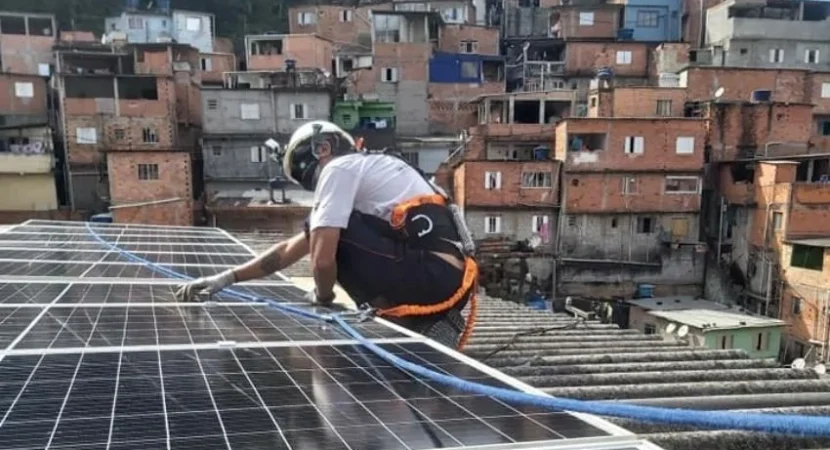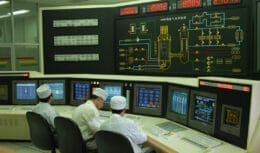
Solar energy generators go to court to obtain tax incentives provided for by law.
The Ministry of Mines and Energy (MME) plans to make available for public consultation, in June 2025, a normative which will establish the procedures linked to the framework of projects of distributed minigeneration in Special Incentive Regime for Infrastructure Development (Reidi), according to information obtained by epbr.
As of September 2023, distributed micro and minigeneration projects will become a priority to take advantage of the tax benefits offered by the regime, which include exemption from PIS and Cofins on the acquisition of new machinery and equipment, provision of services and construction materials . The initiative aims to promote the development of infrastructure in the country, reducing the costs of clean energy projects and encouraging sustainable growth in the energy sector.
Reidi: Special Incentive Regime for Infrastructure Development
Reidi, also known as the Special Incentive Regime for Infrastructure Development, is provided for in the sector's legal framework (Law 14.300/2022), but, in practice, enterprises are not achieving the framework and the generators go to court to obtain the incentive.
Regulation: Tax Procedures and Benefits
In October, the Ministry of Mines and Energy (MME) approved, sub judice, the first framework for a distributed generation project. Oasis Solar Central achieved approval after a process filed in court against the MME, the Union and the National Electric Energy Agency (Aneel).
Process and Projects: Connections and Ordinance
In response to epbr's questions, the ministry informed, in a note, that it held meetings with Absolar (one of the representatives of agents with impacted projects) throughout 2023 to receive contribuições on the regulation of the topic and that a new and specific process will be necessary.
Framework: Secondary Phase and Law
‘The objective of the initiative is to offer an operational solution to manage the growing number of requests to qualify distributed minigeneration projects to Reidi, resulting from the thousands of requests for connections requested from distribution concessionaires. This challenge requires the creation of a new and specific process, adapted to the complexity and volume of these requests’, says the note.
Judicial Guidance: Legal Coverage and Project Holder
In an interview with epbr at the end of November, Eduardo Evangelista, partner in the Regulatory and Energy areas of the Souto Correa office, explained that the delay in regulation created a barrier to the classification of distributed generation projects over the last year.
Tax Benefits: National Electric Energy Agency (Aneel) and Photovoltaic Solar Energy
Reidi has two phases for the electricity sector. The first is classification, in which the agent requests Aneel, it instructs the process, recommends whether it should be classified or not and sends it to the MME.
The MME completes the instruction and publishes an ordinance authorizing the inclusion of the project in Reidi. With this authorizing ordinance comes the second phase, which is the referral to the Federal Revenue Service, which will publish an act that, finally, enables the project.
Negatives: Legal Coverage and Process
‘The distributed generation agents were not being able to go ahead with this, because they started to receive administrative denials, first at Aneel or when it arrived at the MME. The justification for these denials was the lack of regulation. In particular, the adaptation of regulations’, says Evangelista.
According to the lawyer, one of the problems is in the granting. To be included in the regime, energy generation projects must present the document. But unlike centralized generation plants, microgeneration does not have a license.
Project Holder: Ministry of Mines and Energy (MME) and Distributed Generation (GD)
‘It’s a matter of adapting regulation’, he observes.
The repeated denials led the agents to take legal action. Evangelista says that, until mid-2023, the judicial guidance was to wait for the regulation. One year after the veto was lifted, these companies began to win their cases.
Judicial Guidance: National Electric Energy Agency (Aneel) and Ministry of Mines and Energy (MME)
‘The Judiciary began to become aware of the side of distributed generation agents who were unable to benefit from this incentive regime, which has a very substantial impact on the economy of the enterprise’.
Special Incentive Regime for Infrastructure Development: Legal Coverage and Ministry of Economy
The device that grants Reidi was born vetoed in the government of Jair Bolsonaro (PL), due to resistance from the then Ministry of Economy in relation to the extension of benefits that are already granted to sectors such as transport, ports, energy, basic sanitation and irrigation. The presidential veto, however, was overturned by the National Congress in August last year.
Legal Coverage: Regulation and Judicial Injunctions
‘The Law did not create a condition for classification. When the veto fell, the device came into force and the agents already had legal coverage to enable their projects’, explains Evangelista.
According to the lawyer, the court injunctions in favor of the agents recognize that the issue is an adaptation of the regulations because there is no way to present a grant for microgeneration projects and order Aneel and MME to evaluate the projects.
Cost Reduction: Reidi and Ministry of Mines and Energy (MME)
Giacomo Paro, partner in the Tax and Energy areas of the Souto Correa office, states that Reidi allows a reduction of 9% to 10% in the cost of the work.
This occurs because, when the owner of the infrastructure project purchases photovoltaic panels, for example, he notifies the supplier that he is entitled to exemption from PIS and Cofins taxes. The supplier, in turn, as he will not have to pay the charges, passes on this tax savings in the final sale value.
‘What does it mean to have Reidi? It means that what I am buying in terms of products and services, I will buy cheaper, because my supplier will not pay PIS and Cofins, and he will pass on this benefit to me in price reduction’.
Source: EPBR












